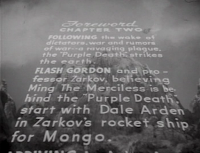 Welcome, California Prep!
Welcome, California Prep!
The following documents go along with today's lesson plan:- New Teacher Demonstration Rubric: [ Griffith ]
- New Teacher Demonstration Rubric: [ Blank Form ]
- Common Core Lesson Plan Template: [ Griffith ]
- Common Core Lesson Plan Template: [ Blank Form ]
World History > World War I > Disillusionment, Perspective, and Point of View
Next, we have Star Wars. While some of you may have never seen the movie, we have all heard of it. It's a story about a young hero named Luke Skywalker who saves the galaxy from some very evil people. Or is it?
Does the way you look at a story (or history) change what you think about that story? Looking at the hero (Luke Skywalker), is he a hero from the perspective of the families and workers aboard the Death Star? Was his attack on the Death Star a terrorist attack? How many "bad guys" were among the 300,000+ killed? When is war justified? When is the mass extermination of innocent people justified? Is "collateral damage" okay if it's for the greater good? What if this was the story of a young Muslim who became orphaned by U.S. bombing efforts, became radicalized, got indoctrinated and joined ISIS, and managed to nuke Washington DC? Perspective and point of view matter.
All Quiet on the Western Front:
The links below include the full text off the book and a Reading Guide. We won't be reading the entire book, though you are welcome to do so; I do highly recommend it. The book was released in January 1929.
If you open the Reading Guide and look at the word list (barrage, billets, etc.), I would like you to define those in your own words based on your reading.
Next on the Reading Guide there are instructions for making a list of characters in the book. As we read through Chapter 1 I would like you to begin this list. It actually starts with Paul Baumer who is the main character and narrator of the story (the Guide uses him as the example for building this list).
As you read this book and get into the characters, you will see the foods they eat, the brotherhood that develops, their love of country and family, their hopes and dreams, their hatred for the "bad guys", etc. You will have favorite characters that you are pulling for. And many times you will realize, "These are the Germans. They are killing Englishmen, Frenchmen, and Americans. Then who are the 'good guys'?"
This is perspective and point of view. Are Muslims good or bad? Point of view. Are Christians good or bad? Point of view? Are Republicans good or bad? Democrats? The 2nd Amendment? North Korea? I'm not saying that there isn't such thing as 'evil', but we have to be open to looking at our perspective and asking why do we believe the way we believe? You may remember a few years ago when "Boys are gross" or "Girls have cooties" -- but you may feel differently now. Your point of view changed.
After you've read the book, you might want to check out the movie. They have been making movie versions of the book since it first came out, but this version is done well -- and it came out before gratuitous sex and violence.
Why is America the greatest country in the world?
This is obviously a controversial opinion, but this causes discomfort in people who are very Nationalistic. We ARE America. Should we punish people who kneel during the National Anthem? Should we require the Pledge of Allegiance? Are we so proud of our freedom that we're willing to take it away from people who believe differently? Why are we so proud of America?
Journal: In the book, "All Quiet on the Western Front" the narrator, Paul Bäumer, and his friends join the army partly because of the nationalistic lectures of their teacher (Kantorek). Nationalism was an extremely powerful force in Europe through the first half of the 20th century and played a part in causing both the First and Second World Wars. Knowing what you know about Nationalism (believing your country is better than ALL other countries) and what we have discussed about perspective and point of view...
- Create a journal discussing why countries believe they are the best. Then discuss how that Nationalism can lead to problems around the world.
- TBA






























